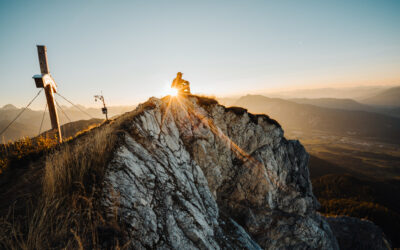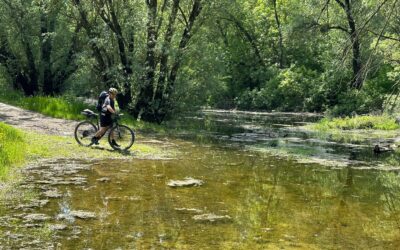Directions to self-discovery About the right and wrong paths on your trail
Hike inward and find yourself: Pause on the Luchs Trail ©ARGE Luchs Trail/Max Mauthner
We are convinced that hiking itself – with or without a spiritual background – can be a gateway to your inner self. If you don’t associate hiking with spirituality or self-discovery, you will at least learn a lot about yourself. How do I deal with myself when it rains a whole day? How do I react when the wrong branch has been taken? How do I behave towards others in the group if I have problems or how do I deal with them when I am on my own?
From the glacier to the sea: Ways of self-discovery
We want to tell you a little about the walking of paths and detours on trails from our experience. Which trail would be better suited than the Alpe-Adria-Trail with its 27 stages and its route through three countries? Such long-distance hiking trails offer a multitude of possibilities for self-discovery. The trail leads topographically from the glacier to the sea. But where will it lead you?
As you know, all routes lead to Rome. On the Alpe-Adria-Trail all routes lead to …. Muggia. Well, Muggia is not Rome, but the pretty little village on the upper Adriatic as the end point of the Alpe-Adria-Trail is an important destination for many hikers. But the trail is long and how do you always find the “right” way on the long distance?
Of ways and detours!
Don’t worry, the Alpe-Adria-Trail is well signposted. However, going off the beaten track might also be something charming. It probably depends on how you deal with such a situation in life. You could take it with a sense of humour that sounds like: “A detour will increase your knowledge of the area!” Such detours are also new ways to go and may lead to a hidden chapel, to a tranquil pond or to a viewpoint that allows new insights. In any case, detours also lead to new experiences. And finally, the experienced is the one who has learned to deal with the adversity of things, with resistance and delays, the one who has learned to take detours and find them.
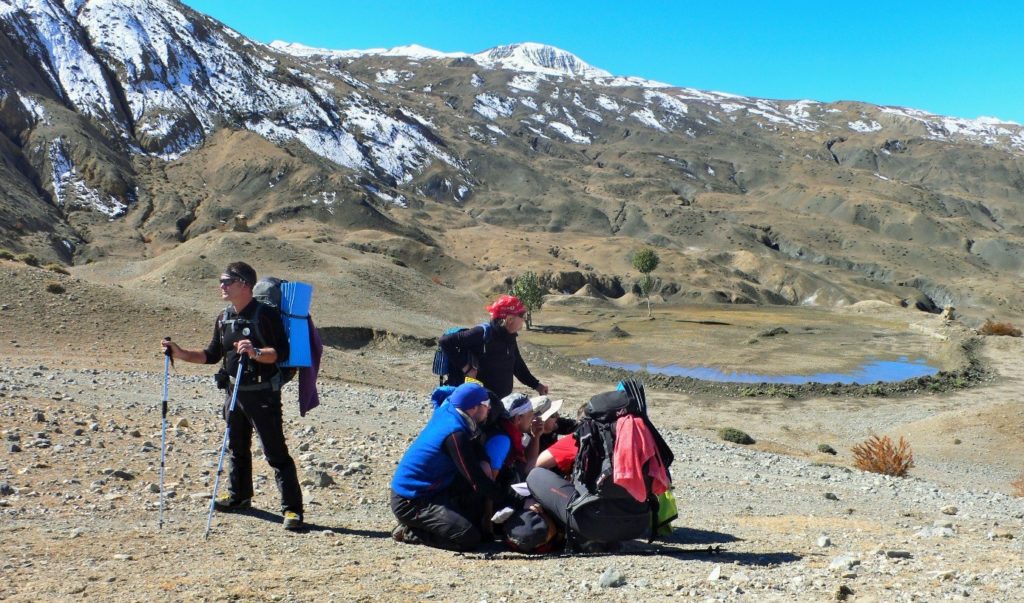
Hiking and life paths
To me personally, hiking trails and life paths therefore have something essential in common: they can lead nowhere else but to myself – including all apparent detours! Zen master Shunryú Suzuky has written the following lines: “I am going my way. Wherever I go, I meet myself.” There is probably no way around it!
In this sense, step by step the path becomes the goal. Who then takes a path, however, which does not already represent the essence of the goal in its own way, will miss it. The philosopher of religion Martin Buber once expressed it like this: “The goal that one reaches will not look different than the way by which one reaches it!” So if you rush with the stopwatch from one stage to the next in a performance-oriented way, you will probably also experience the destination a bit stressful.
In this case, however, you may not have arrived in the right place at all, but are already looking for the next destination again. Then self-discovery is more likely to become a permanent search for oneself. Hermann Hesse wrote so aptly about this in Siddhartha. “Searching means having a goal. But finding means: to be free, to be open, to have no more goal.”
Wander- und Lebenswege
Für mich persönlich haben Wanderwege und Lebenswege daher etwas Wesentliches gemeinsam: sie können nirgendwo anders hinführen als zu mir selbst – alle scheinbaren Umwege mit eingeschlossen! Der Zen-Meister Shunryú Suzuky hat dazu folgende Zeilen geschrieben: „Ich gehe meinen Weg. Wohin ich auch gehe, treffe ich mich selbst.“ Daran führt wohl kein Weg vorbei!
In diesem Sinne wird dann Schritt für Schritt der Weg zum Ziel. Wer dann allerdings einen Weg einschlägt, der nicht schon in seiner Art das Wesen des Zieles darstellt, wird es verfehlen. Der Religionsphilosoph Martin Buber drückte dies einmal so aus: „Das Ziel, das man erreicht, wird nicht anders aussehen als der Weg, auf dem man es erreicht!“ Wenn man also mit der Stoppuhr leistungsorientiert von einer Etappe zur nächsten hetzt, wird man den Ankunftsort wohl auch etwas stressig erleben.
In diesem Fall ist man aber vielleicht gar nicht richtig angekommen, sondern schon wieder auf der Suche nach dem nächsten Ziel. Dann wird die Selbstfindung wohl eher zur permanenten Selbstsuche. Hermann Hesse schriebt dazu in Siddhartha so treffend. „Suchen heißt: ein Ziel haben. Finden aber heißt: frei sein, offen stehen, kein Ziel mehr zu haben.“ Mehr dazu findest Du hier.
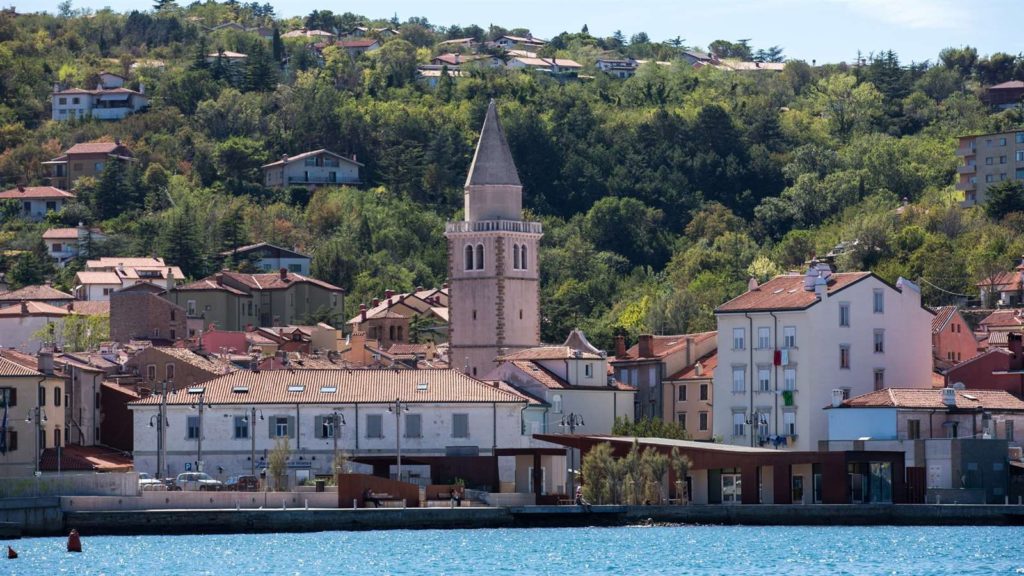
The end point of the Alpe-Adria-Trail: Muggia – the tranquil fishing village on the upper Adriatic Sea
Muggia is a very tranquil fishing village and in this sense deserves to be approached with the serenity of a peaceful walk. Ultimately, it doesn’t matter whether Muggia is the end point of your walk or another place on the trail. If you manage your way in the described consciousness, it is probably up to each individual to find his own way – despite all the signposts.
Author
Werner Mussnig
The habilitated economist has always been torn between the world of business and his hobbies of climbing & trekking, now immersing himself more and more in the universe of Bookyourtrail.
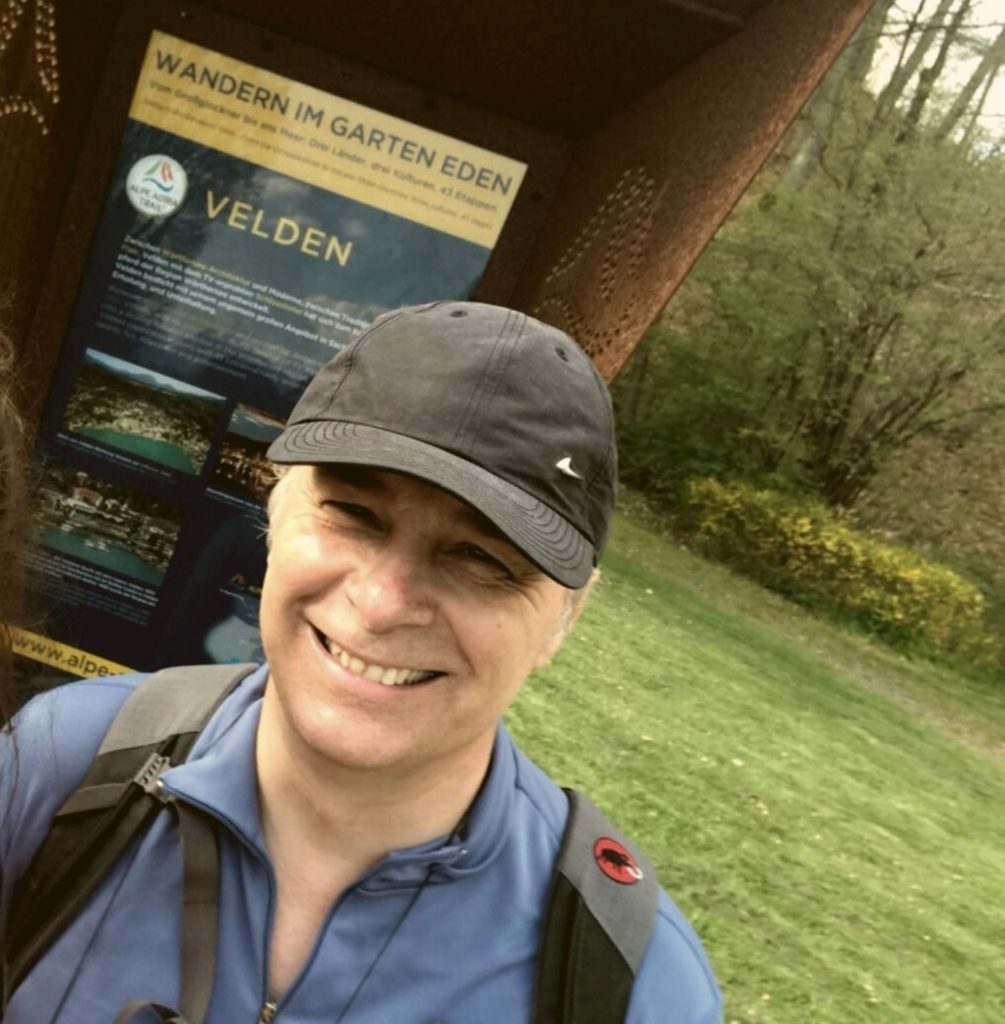
Related articles
Travel report autumn-hiking
©Trail AngelsLong-distance hiking in autumn Panorama Trail Southern Alps - autumn hiking can be so beautifulDo you know this too? You can hardly wait for summer after a long winter. And when it actually arrives - perhaps after a rainy spring - it's already over again....
Travel report Amazon of Europe Bike Trail
©Peter RupitschExperience the last great river wilderness in Europe in the border triangle of Croatia, Serbia and Hungary by bike Contents Author Travel Report Offers Who wrote this report for you? Peter Rupitsch from Heiligenblut am Großglockner is one of the most...
Get in touch
Every great journey begins with the first click.
If we could inspire you for responsible tourism, just get in touch with us. Who knows, maybe something big will come out of this first click!
